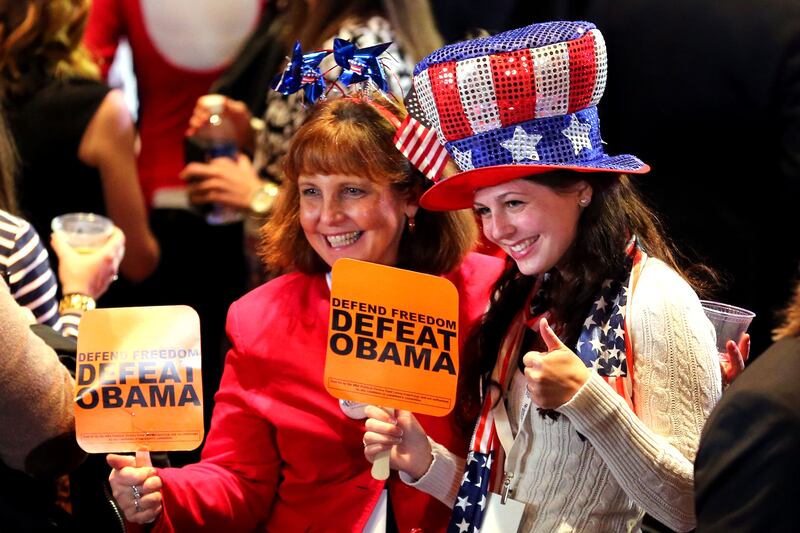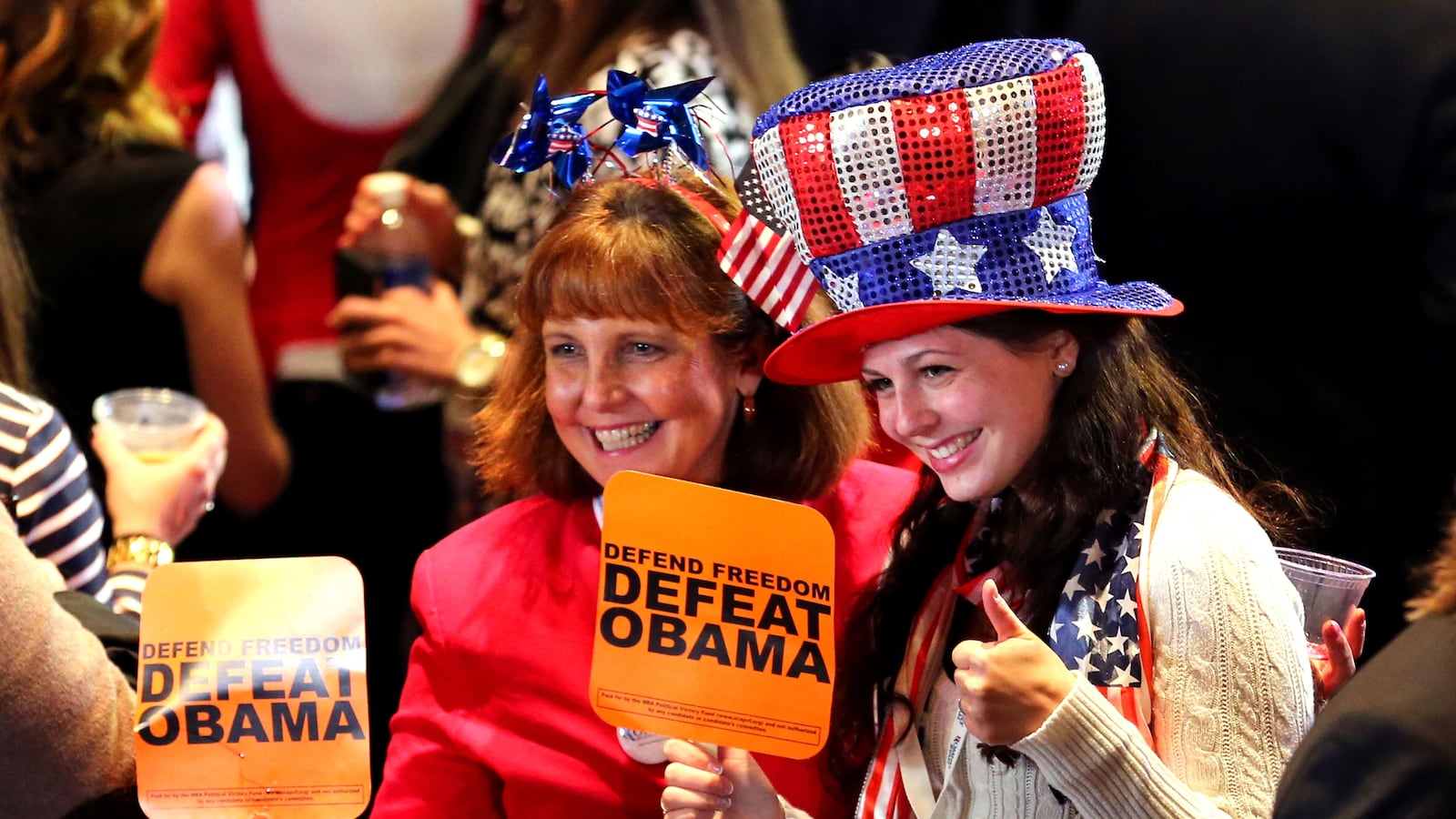Today’s confident predictions of a new era of Democratic dominance all seem to ignore the one decisive demographic development that strongly favors the Republicans: the rapid, unstoppable graying of America.

Voters above 60 already easily outnumber those below 30, and with low birthrates and lengthening life spans, this imbalance will only grow. In other words, the most Republican-leaning age group in the population is rapidly increasing its percentage of the electorate, while the most Democratic-leaning age cohort simultaneously declines.
The figures tell an important story: between 1980 and 2010, the number of Americans between the ages of 18 and 24 remained unchanged (at 30 million) while the number of those above 65 increased by more than 50 percent (from 25.5 to 40 million). During the same time period, the average age of all Americans rose from 30 to 37. According to projections from the Department of Health and Human Services, those 60 and older will make up 25 percent of the U.S. population in 2030, up from 18 percent in 2010.
This matters politically because old people and young people tend vote so differently in presidential elections. In 2008 Americans over 65 represented the only age group in the electorate John McCain won, 53 to 45 percent; four years later, they turned even more decisively to Mitt Romney, 56 to 44 percent. In fact, in 2012 Romney won a clear majority of all voters over 30; without Barack Obama’s overwhelming margin of 60 to 36 percent among young voters between 18 and 29, the president certainly would have lost.
The victorious Democrats feel untroubled by these trends, however, because they’re secure in their belief that the youthful cadres that powered Obama’s victory in both 2008 and 2012 will remain committed liberals even when they’ve turned 40, or 50, or 70 for that matter. But other exit polls suggest that old patterns still apply: people grow more conservative as they grow older. To understand why, it’s worth examining those segments of the electorate where Mitt Romney did especially well.
For instance, the Republican nominee crushed the incumbent president among married voters by 16 points; among voters who attend religious services at least once a month (13 points); and among citizens who live in households earning $50,000 a year or more (8 points).
These three groups each represented a clear majority of the electorate: married voters were 60 percent of those casting ballots in 2012, those who attended religious services regularly made up 55 percent, and people with household incomes above $50,000 amounted to 59 percent of all voters.
These figures raise an inevitable question: if Romney and the GOP won landslides among the hefty majorities who are married, religiously involved, and middle class or higher, how did Obama manage to put together his decisive victory?
He did it by winning even more commanding majorities among the 41 percent of voters who are unmarried, the 12 percent who list their religious affiliation as “none,” and the 27 percent who earn less than $30,000 in yearly family income. In other words, the qualities that distinguished Obama’s indispensable base are characteristics strongly associated with those who are young and just starting off in life.
But the good news for Republicans is that none of these people will remain young—and very few of them will remain single, economically insecure, or religiously disconnected for the rest of their lives. If well-established trends apply to this year’s younger voters, they will shift to the right as they march through life, building careers and starting families and connecting with organized faith.
Conservatives should easily grab more of those voters as they get older. When people begin families, head back to church, and make more money, they naturally depend less on government for their sustenance or salvation. Republicans take pride in counting their own earning power more than on federal programs, trusting their own spouses rather than Washington bureaucrats, and turning to God ahead of government to answer their prayers and their search for meaning.
That search will still lead the great majority of young people to marriage, church, and greater earning capacity at some point as they age. The fact that more Americans under 30 are single than ever before doesn’t indicate that they are committed to that solitary status; the demographers make clear that it’s mostly a sign that they’re delaying marriage, not avoiding it altogether. By the same token, most students of American religiosity describe the prevailing secularism among young people as a phase in life, not a final destination.
Politically, Republicans should support policies that will make it easier for young people to grow up and to achieve goals that most of them already cherish—goals like marriage and kids, economic progress, and, ultimately, involvement in religious communities. These are significant changes that will simultaneously predispose them to a more conservative view of the world. And when it comes to faith, family, and financial success, the more the merrier as far as the GOP is concerned. Among the 43 percent of voters who attended church or synagogue once a week or more—not just once a month—Romney won in a walk, 59 to 39 percent. Exit polls also showed that 28 percent of the electorate had an income of $100,000 or more, and that among this group, the GOP margin was 54 to 44. Married couples with children also tilt even more decisively in a conservative direction than married couples in general.
Republicans have an opportunity to gain ground with a consistent (and insistent) message: that the personal choices and maturation that benefit individuals will also benefit the society at large, and will simultaneously strengthen the conservative community. Democrats will only damage their long-term prospects if they continue to pander disproportionately to the interests and values of kids. Most Americans will spend far more time and cast many more votes as middle-aged or elderly people with mortgages and responsibilities than they will as youthful, disconnected free spirits. In a rapidly aging America, the Republicans can only gain by positioning themselves unequivocally as the party of grownups.





